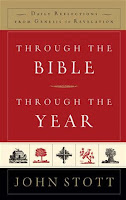Ten Commandments
The 9th commandment is: "You shall not bear false witness against your neighbor."
We see the violation of this ninth commandment memorably portrayed in the ninth book of Israel's primary history, Kings. The book of Kings is full of irony. It recounts a nation founded on
the truthful speech of the covenant, divided by calumny and false
witness. Many atrocities are committed in Kings but one stands out as emblematic of this ironic era. At the heart of the narrative is a faithful farmer, tending his vineyard according to the precepts of the Lord. Naboth (a play on the word "nabi" meaning prophet) becomes the object of Jezebel's - the barren queen and her eunuch-like stooges - dissimulation, distortion and deceptive speech. There are two interrelated ironies in this story.
1st irony: The faithful (Naboth the farmer) is injured by the false witness of the faithless (Jezebel the barren queen, whose fruitlessness is manifest in her words, which ironically come true in her own death) (see 2 Kings 9:30-37).
2nd irony: The faithless uses the form of faithful speech - the word of a prophet - to persecute Naboth (1 Kings 21:1-14).
Let's consider these two ironies in reverse. In 1 Kings 21:1-14, we learn how the barren one seeks to undo the fruitful work of Naboth through faithless words communicated in faithful form. By faithful form, we mean the command-compliance form that is normally used to convey the prophetic message. The command-compliance form is used to convey the Lord's message to Elijah earlier (cf 1 Kings 18:41-4619:4-8; etc), but now it is used to convey the message of Jezebel to her "two worthless men" (21:10). Her parody of faithful speech bears repeating: "proclaim a fast" (v9); so they proclaim a fast (v12). She writes, "Seat two worthless men opposite, and let them bring a charge against him" (v10); so "the worthless men brought a charge against Naboth in the presence of the people" (v13). She even supplies the charge and punishment: "You have cursed God and the king. Then take him out and stone him to death" (v10); "saying, Naboth cursed God and the king. So they took him outside the city and stoned him to death with stones" (v13).
Naboth is the victim of calumny, a form of false witness that harms the reputation of another and gives occasion for false judgements against him. However, Jezebel is rightly consumed by her own words, falling to her death on stone pavement and mutilated (a reverse stoning) (2 Kings 9:33-35). People who falsify, dissimulate, distort and the like end up consumed by their own machinations.
It was this command, and this form of diminishing the dignity of another human being, that Paul had in mind when he exhorted us to: "put on the new man, created after the likeness of God in true righteousness and holiness. Therefore, having put away falsehood, let each one of you speak the truth with his neighbor, for we are members of one another (Ephesian 4:24-25).
Respect for the reputation and dignity of persons forbids every attitude and word likely to cause them unjust injury.
We live in a divided Communion as well as a divided Nation, so we live in the conditions ripe for the "barren queen and her two worthless men." But the conditions are even more ripe for the word of God and fruitful speech, the healing word that allows people to live with great difference without enmity. Sisters and brothers, don't be content to sit firm in the company of distortion and deceit but speak the truth with your neighbor and watch all distortion, detraction and deception give way to the reconciling word of Christ. That is the promise of the "third use" of the ninth commandment.

No comments:
Post a Comment